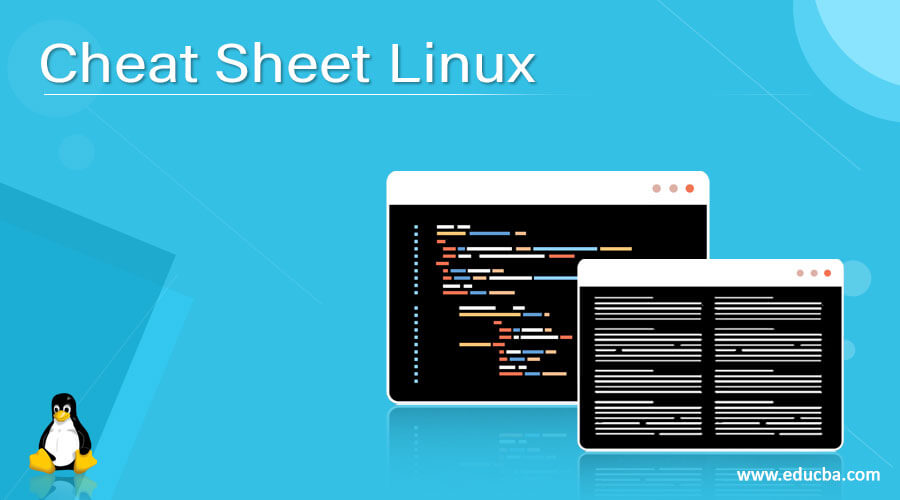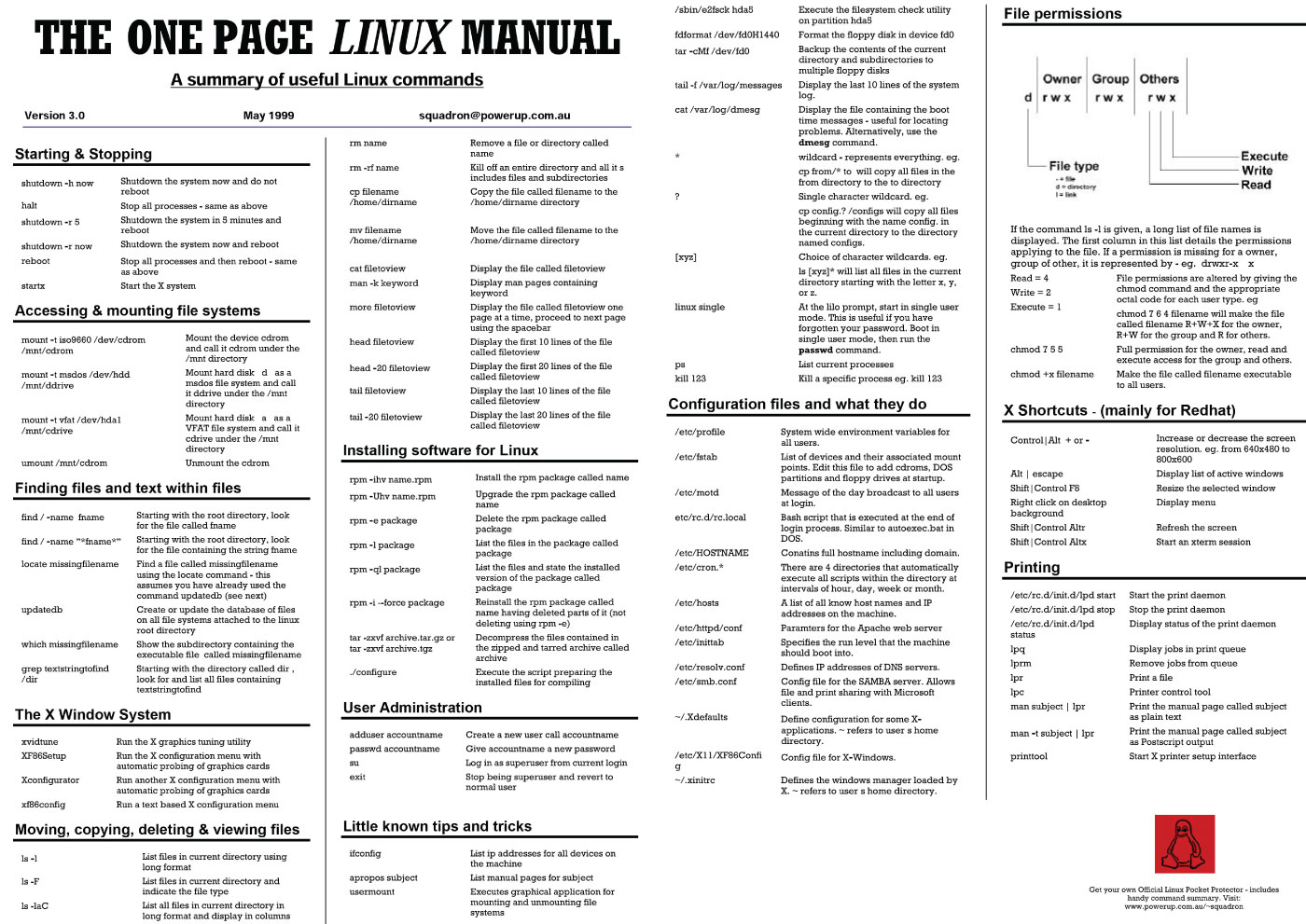

Cron jobs are typically located in the spool directories. They are stored in tables called crontabs. You can find them in /var/spool/cron/crontabs. The tables contain the cron jobs for all users, except the root user. The root user can use the crontab for the whole system. To display contents of the root user’s crontab, use the less command. The crontab can be created easily by using the crontab command. To Create or Edit your cron jobs. User@machine:$ crontab -e Crontab Commands. Crontab -e Edit or create a crontab file if doesn’t already exist. Crontab -l To Display the crontab file. Crontab -r To Remove the crontab file. Crontab -v To Display the last time you edited your.
| Term | Description |
|---|---|
| tty | Shorthand term for terminall and also a command on Unix and Unix-like operating systems to print the file name of the terminal connected to standard input. tty stands for TeleTYpewriter. |
| UNIX | Spelled either UNIX or Unix and is a family of multitasking, multiuser computer operating systems that derive from the original AT&T Unix, development starting in the 1970s at the Bell Labs research center. |
| GNU | Recursive acronym which stands for: GNU's Not Unix |
| BSD | The Berkeley Software Distribution (BSD) was an operating system based on Research Unix. Today, 'BSD' often refers to its descendants, such as FreeBSD, OpenBSD, NetBSD, or DragonFly BSD, and systems based on those descendants. |
| FreeBSD | FreeBSD has similarities with Linux, with two major differences in scope and licensing: FreeBSD maintains a complete system, i.e. the project delivers a kernel, device drivers, userland utilities, and documentation, as opposed to Linux only delivering a kernel and drivers, and relying on third-parties for system software; and FreeBSD source code is generally released under a permissive BSD license, as opposed to the copyleft GPL used by Linux. |
| OpenBSD | OpenBSD is a security-focused, free and open-source, Unix-like operating system based on the Berkeley Software Distribution (BSD). |
| NetBSD | The NetBSD project focuses on code clarity, careful design, and portability across many computer architectures. |
| Absolute pathname | A pathname that begins at the root directory., i.e. / |
| alias | A name in place of a command. Alias' can be defined in for example ~/.bashrc |
| apropos | A command that displays the reference page names and summary lines that contain a specified word or string of characters. The apropos command is the same as the man -k command. |
| builtin | A command that is built into a shell, as opposed to a command from a seperate executable. |
| cron | A daemon that executes commands at specified times and dates, according to instructions in the crontab file. |
| crontab file | A file that specifies the dates and times at which e.g. user-specified commands are to be executed. |
| daemon | A computer program that runs as a background process not under direct influence of a user. |
| emacs | A text editor. |
| vim | A text editor. |
| vi | A text editor. |
| nano | A text editor. |
| environement variable | A variable used by the shell or commands run inside the shell. Such variable is available to all processes in the given process group. Further they are propagated by the creation of child processes, e.g. in a subshell. |
| EOF | End-of-file. A condition where no data is left to be read from a data source. |
| Escape sequence | A character (in the case of an 'escape' or character sequence used to protect a character from interpretation by a program. Usually an ASCII character, often backslash. |
| /etc | |
| event | |
| ex (editor) | |
| field | |
| field seperator | |
| file descriptor | |
| flag | |
| filename expansion | |
| fork | |
| gid | |
| uid | |
| globbing | |
| grep | |
| awk | |
| group | |
| hard link | |
| soft link | |
| hash | |
| $HOME | |
| init | |
| inode | |
| input redirection | |
| job | |
| job control | |
| job number | |
| kernel | |
| kill | |
| linter | |
| man | |
| manpage | |
| mount | |
| octal | |
| package | |
| parent directory | |
| parent process | |
| partition | |
| passwd | |
| $PATH | |
| pid, PID | Process ID - a unique number assigned to a process that is running. |
| pipe | |
| pipeline | |
| piping | |
| POSIX | A collection of standards proposed by the POSIX working groups of the Institute of Electrical and Electronics Engineers (IEEE). |
| pwd | A command for displaying the absolute path of the current working directory |
| raw socket | |
| rc | |
| regular expression | Also called RegEx. |
| relative pathname | A pathname that begins at a user's working directory |
| restricted shell | A security feature which provide restricted shell access (limited features in a controlled environment) |
| root | The loginname of the superuser (sysadmin), or the topmost directory, i.e. the first / in any absolute pathname. |
| sed | sed is a powerful streamline editor for textfiles. It influenced later programs like AWK and Perl and was one of the first tools to support regular expressions. Released in 1974. |
| stdout | standard output |
| stdin | standard input |
| stderr | standard error |
| stty | |
| su | |
| tail | |
| head | |
| $TERM | |
| termcap database | |
| terminfo database | |
| tilde substitution | ~ is substituted with $HOME, i.e. your home directory. If your username is james231 the command vim ~/.bashrc will be turn into vim /home/james231/.bashrc |
| trap | |
| UID | User ID. Also written as: uid. |
| /usr | |
| variable expansion | |
| wildcard character | A placeholder such as *, +, ?, # which is interpreted differently. # is used as a wildcard character for digits, ? is used as a wildcard for 0-1 symbols, e.g. do? will match doc, do, doh, dos etc. do* will likewise match domination, do, dorm, dolomite and so on. |
| X Window System | A windowing system for Unix-like operating systems. Currently at version 11 (i.e. X11) and has been since 1987. The X.Org foundation leads the X project. |
| X11 | X is a windowing system that provides a basic framework for user interfaces. X11 refers to X version 11. |
Duck Duck Go's instant answer for 'crontab cheat sheet'


crontab
| # Commands are executed by cron when the minute, hour, and month of year |
| # fields match the current time, and at least one of the two day fields |
| # (day of month, or day of week) match the current time. A field may be |
| # an asterisk (*), which will always match. |
| # |
| # Fields in order: |
| # minute (0-59) |
| # hour (0-23) |
| # day of month (1-31) |
| # month (1-12 or first three letters) |
| # day of week (0-7 or first three letters; 0 or 7 is Sunday) |
| # Run every Tuesday at 2:30am |
| 30 2 * * tue /path/to/command |
| # or |
| 30 2 * * 2 /path/to/command |
| # Run every 10 minutes |
| */10 * * * * /path/to/command |
| # Run every 2 hours, on the half-hour |
| 30 */2 * * * /path/to/command |
| # Run every 2 hours on the half hour, but only on weekdays |
| 30 */2 * * 1-5 /path/to/command |
| # Run at 12:05, 13:05, ..., and 18:05 |
| 5 12-18 * * * /path/to/command |
| # Run at 12:05, 14:05, 16:05, and 18:05 |
| 5 12-18/2 * * * /path/to/command |
| # Run on the first day of every month, at 12:00am |
| 0 0 1 * * /path/to/command |
| # Run on the first day of every third month, at 12:00am |
| 0 0 1 */3 * /path/to/command |

Crontab Cheat Sheet Pdf
Sign up for freeto join this conversation on GitHub. Already have an account? Sign in to comment
